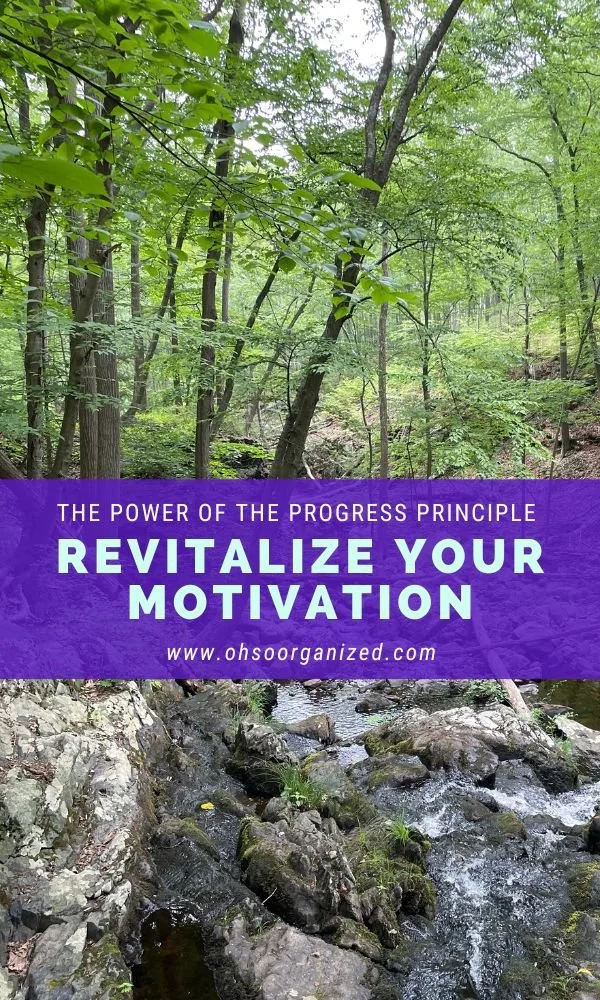Last week, I wrote about the transitions we’re experiencing as the seasons change. While fall doesn’t officially begin for several weeks, its unofficial start has happened. You’re back from summer vacation, the kiddos have returned to school, and your plate is piled high with numerous projects, goals, and activities. Your schedule is packed, and your daily patterns are changing. Do you feel calm and prepared, or anxious and not ready?
Transitions can be tricky and uncomfortable. However, intregrating mindfulness into the mix can bring calm and confidence to this next phase.
There are six ways to feel ready as you prepare for your busy season. You can use these strategies for any shift you’re experiencing, such as starting a new day, month, season, year, project, or life change.
6 Ways to Mindfully Prepare for Your New Season
1. Prepare Emotionally
Your emotional state benefits greatly when you prioritize your self-care. To fortify your energy reserves and to create a positive emotional state:
Get enough sleep
Eat healthfully
Hydrate
Move your body
Make time for just you
Engage in nourishing activities
2. Prepare Environment
Clutter can cause blockages in your thinking, well-being, creativity, daily flow, and routines. Make time to let go of the physical things you no longer need, want, are in your way, or are no longer relevant for this new phase. Clear the path for your new season. What can you declutter now?
3. Clarify Goals & Why
Did you create an ambitious list of goals at the start of this year? This change of seasons presents an excellent time to revisit and reset. Ask:
What one or two things do you want to accomplish this season?
What will success look or feel like when you accomplish those?
What is driving you to get there?
What is your why?
Taking the time to clarify will be valuable. The clarity will help with more effortless and less stressful decision-making when your choices align with your goals and overarching why.
“Integrate mindfulness to bring calm and confidence to this next phase.”
4. Gather Your Team
The busy season makes it a terrific time to gather more support. Collect your go-to peeps- family, friends, colleagues, and professionals. There is no reason to go it alone. Who will be on your team? They can help you:
Succeed
Brainstorm and discuss ideas
Navigate frustrations and challenges
Cheer you on
5. Gather Your Resources
Aside from your ‘team,’ what else will help you prepare for this season? What physical supplies or products will be beneficial? What about finding resources for ideas or referrals?
As we’re in the back-to-school mode, images of sharpened pencils, blank notebooks, and boxes of new, colorful crayons fill my thoughts. While our kiddos are adults now and not in that stage, I remember when they were. Returning to school meant gathering the essential supplies, which helped them feel prepared and ready to learn. What do you need to feel prepared?
6. Schedule Downtime
During the fullness of this new season, plan time to stop. We aren’t designed to be constantly doing. We also need time to just be. Whether you make time daily, every week, or once a month, build breaks from the busyness. Each of us has different refueling needs. My daily mindfulness meditation practice and walks in nature keep me grounded and calm. They give me a quiet space to practice mindfulness, restore my energy, and prepare me to engage more fully after I pause.
New Podcast: Helping You Reset for the New Season
A few weeks ago, I enjoyed talking with the engaging, delightful podcast host, writer, and my new friend Kara Cutruzzula on her “Do It Today” podcast. Our conversation covered many topics, including ways to get ready for the new season. Listen to our conversation below:
If you are gathering your team and would like support from me as your Virtual Professional Organizer, let’s talk. I’d love to help as you travel on this next part of your journey. Call 914-271-5673, email me at linda@ohsoorganized.com, or click here to contact me through this site.
What helps you mindfully prepare for change? How do transition times affect you? I’d love to hear your thoughts. I invite you to join the conversation.











